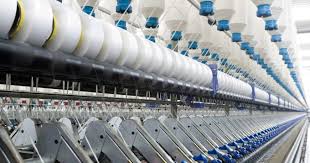LAHORE: The All Pakistan Textile Mills Association (APTMA) has decided to keep all the mills shut in next week in order to protest over the non-provision of the incentives to the industrialists which were promised by the government.
APTMA Chairman Aamir Fiaz expressed these views in a press conference. He said the trade deficit has reached the highest level in country’s history due to various poor policies of the government and a continuous increase in the production costs.
APTMA Vice Chairman Ali Pervez and APTMA Punjab Chairman Syed Ali Ahsan and Gohar Ejaz were also present on the occasion.
The chairman said that prime minister is not fulfilling the promises that were made to the industrialists. He said the volume of export was more than $25 billion in 2013 when the incumbent government took charge, but it has reduced it to less than $20 billion.
Aamir Fiaz told that PM Nawaz had promised to pay funds worth Rs180 billion, but Finance Minister Ishaq Dar had allocated Rs4 billion only in the budget for fiscal year 2017-18. He said the industrialists are being asked to increase the exports without giving them the incentives.
Aamir further added that it was made clear in the previous year that the trade deficit would cross $30 billion, but government did nothing expect taking loans that the nation will pay with interest. He said progress cannot be made without increasing exports, and exports cannot be increased just by making announcements. The APTMA chairman demanded that the government should act upon the policy it had announced earlier. He said Rs200 billions of export industry have been held by the government, and industry will not start working until they are paid back. He said Ishaq Dar, like every year, promised to pay the funds, but did not do it.
After the press conference, a protest was staged outside the APTMA house and slogans were raised in favour of the APTMA demands. The protestor had also set the fabric and thread on fire.




